10 Comic Book Ideas To Help You Get Inspired
Dive into the realm of imagination with unique comic book ideas that will ignite your creative spark and launch your journey in visual storytelling.

Writing a comic book is no easy task. It involves crafting intricate stories, developing dynamic characters, creating captivating illustrations, and presenting them in a functional and artistic layout. However, generating great comic book name ideas and stories can be tricky without the right inspiration.
In this article, we will explore different techniques for generating captivating ideas for a comic book.
The Power of Comics
From newspaper comic strips to webcomics, comics often explore real-life issues, ranging from the aftermath of personal tragedy to how society discriminates against people from different backgrounds. Successful comics can inspire countless readers, and with the right story, you might create the next comic masterpiece.
To help get you started, here are 10 creative ideas you can experiment with to find the inspiration to craft your own comic.
Idea 1: Blend genres for a unique twist
When you think about genres like romance, fantasy, horror, or science fiction, you can probably easily list a bunch of common themes and elements. Mixing genres and blending different elements can create a cool twist that makes your work stand out.
Try incorporating horror into a Western plot, with a serial killer roaming the Great Plains. Or mix fantasy and mystery, and tell a story about an overworked detective solving a case in a world where magic is part of daily life.
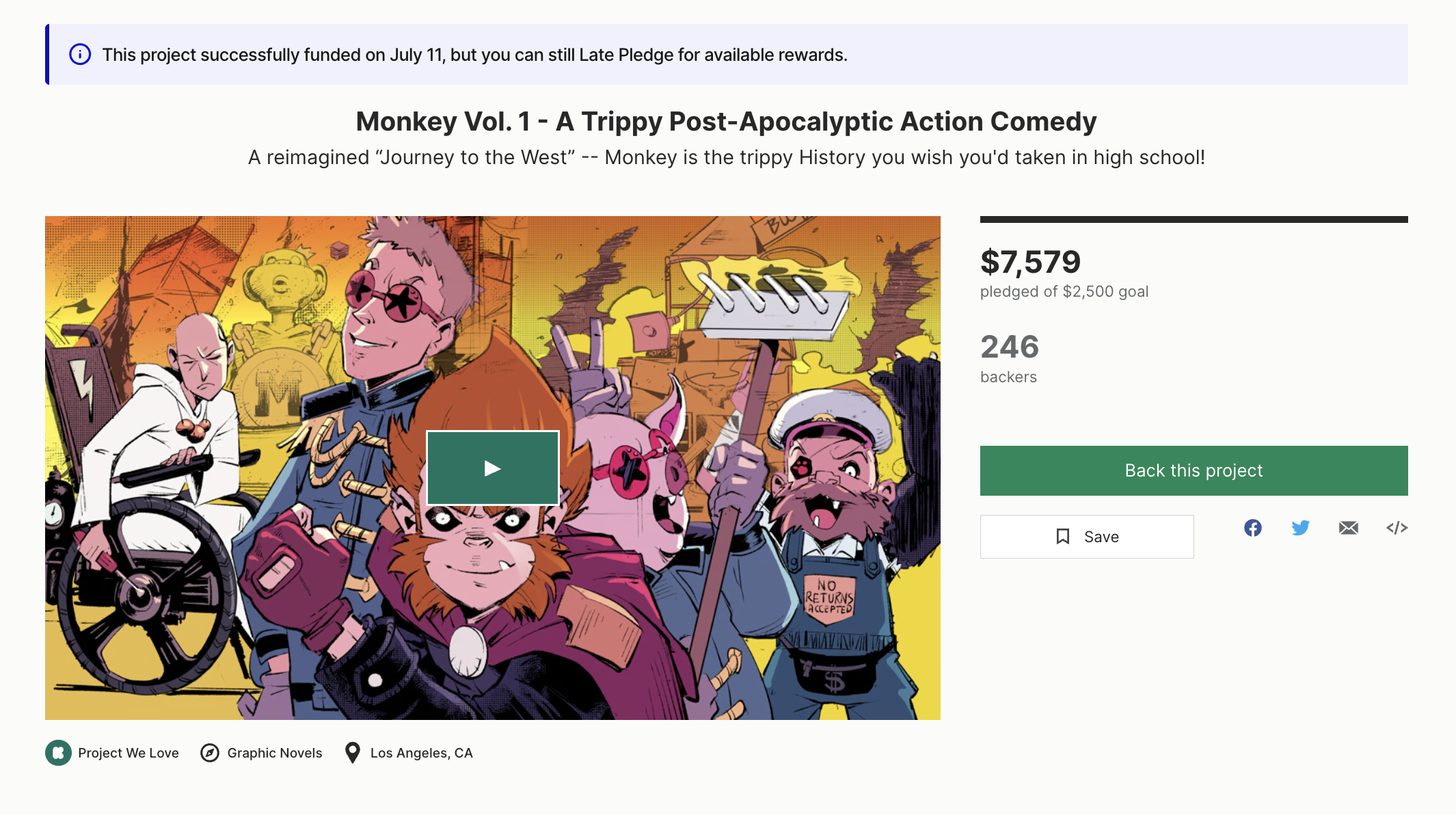
Idea 2: Reimagine historical events
Historical events can provide an excellent foundation for a comic book story. Many famous comic book creators have used settings, events, and characters to inspire new stories or unique tellings of real stories. Alan Moore's From Hell is a great example. It's based on the historical Jack the Ripper murders but takes fictional liberties to expand the story.
Whether the plot involves an alternate version of actual events, inserting a fresh character in the mix, or reimagining an event in modern times, historical events can be a fantastic launchpad for a masterwork.
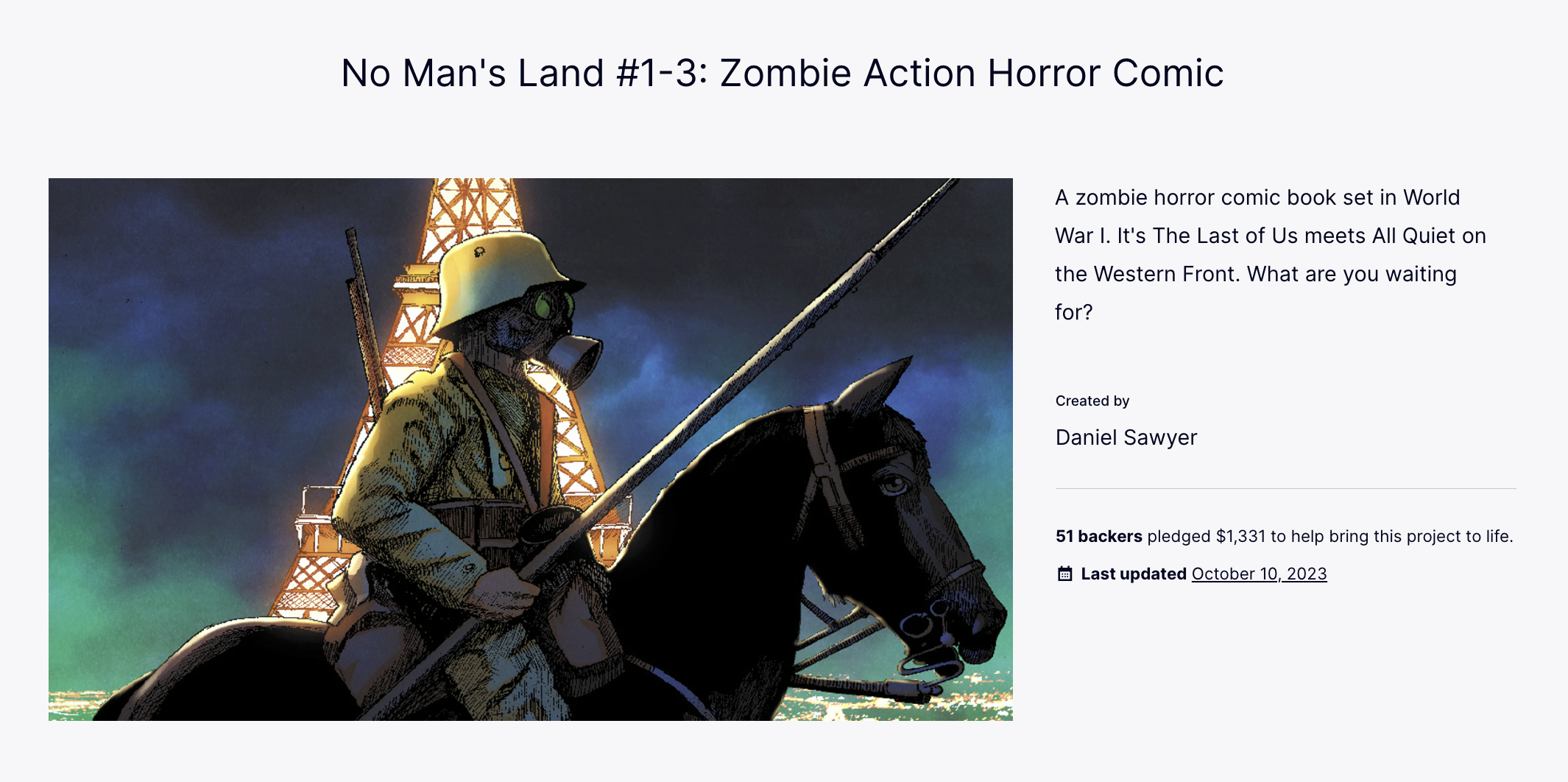
Idea 3: Explore untold perspectives
A story can shift dramatically depending on the main character's perspective. While comic book stories often take the hero's perspective, shaking it up can add some exciting possibilities.
Crafting a story through the eyes of a minor character can make the hero more mysterious or complex. Likewise, a story told from the antagonist’s point of view can make their perspective more relatable and change the conflict's dynamics.
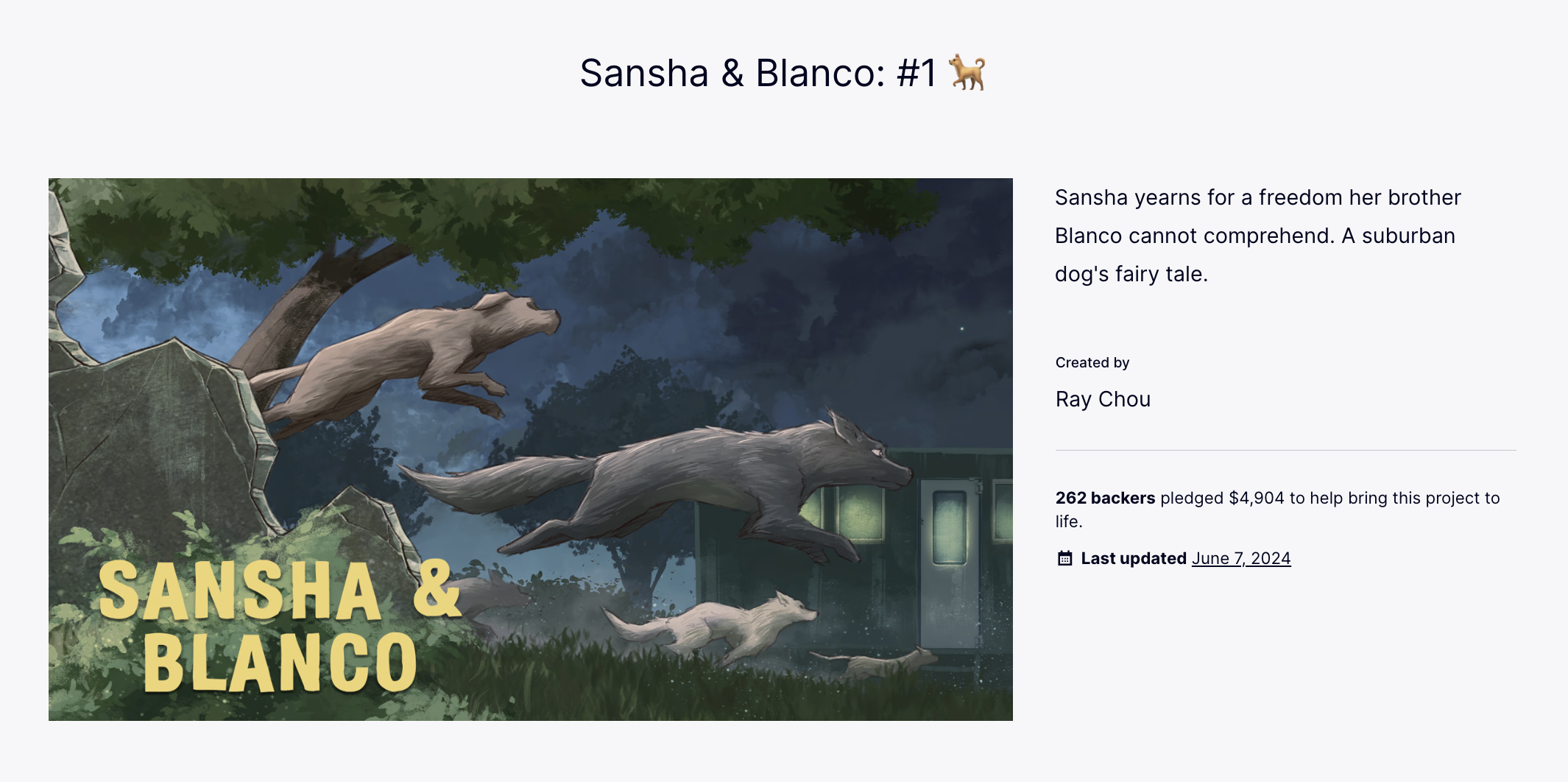
Idea 4: Challenge the traditional superhero mold
Anyone who reads a superhero comic can boil the main ideas down into a basic formula: A character with extraordinary abilities must defend the human population against a wrongdoer with evil intentions.
This formula is the basis for countless comic books, but putting a new spin on it can breathe life into your storyn and compelling character development opportunities.
Challenging the traditional idea of the hero or villain can create interesting dynamics. Providing villains with relatable motives—like seeking revenge for a personal tragedy—can add complexity to the story. Likewise, a superhero with social anxiety and a fear of heights could add wrinkles that make your story more engaging.
Creating more complicated characters can make them more relatable to readers. This complexity also makes it harder for readers to predict what will happen next. That keeps readers coming back to see what you have in store for their new favorite character.
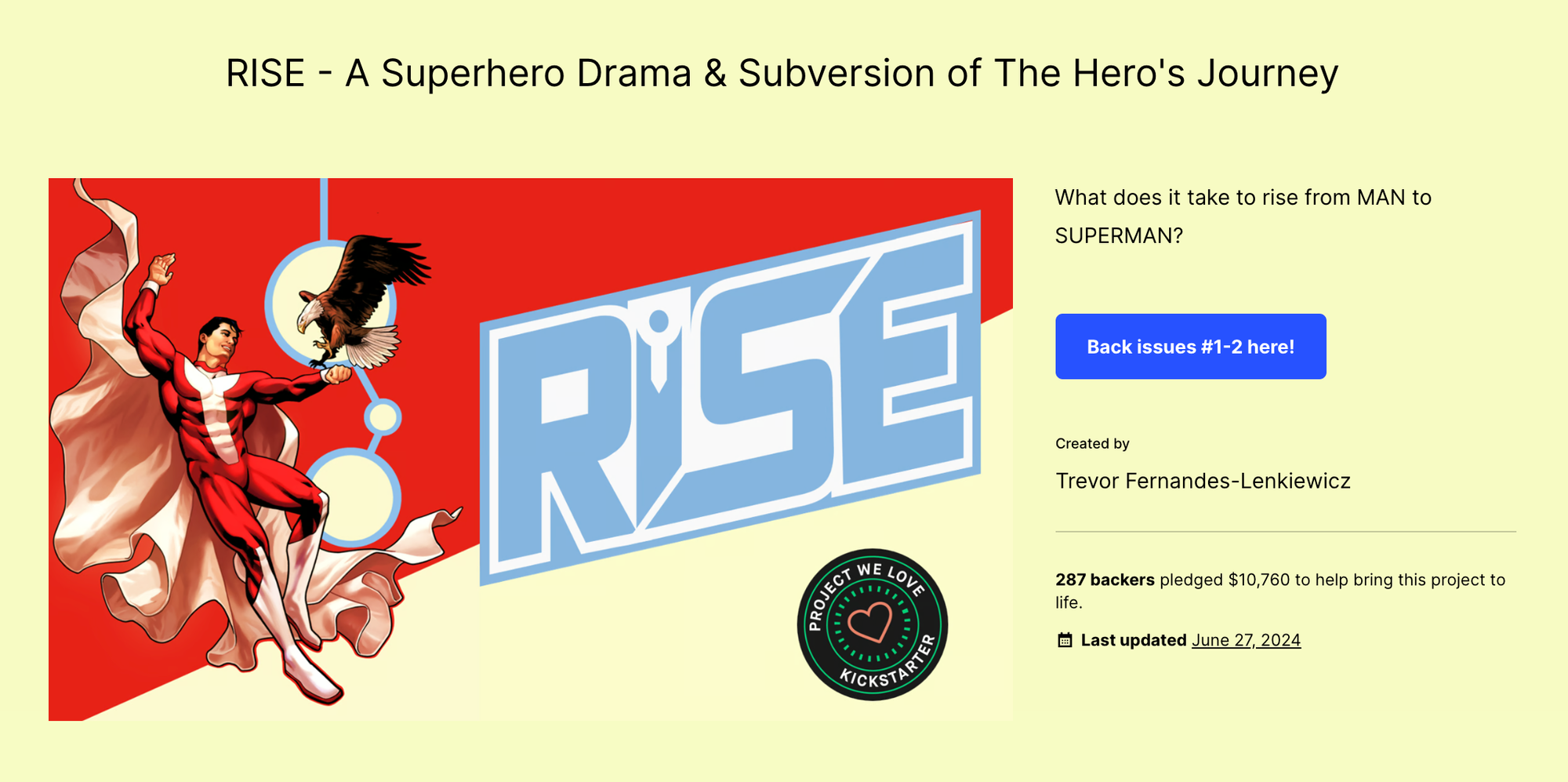
Idea 5: Consider anthropomorphic characters and stories
Sometimes, the most memorable figures aren’t actually people. Mickey Mouse, Frosty the Snowman, and Sonic the Hedgehog are all recognizable characters that aren’t human but have human traits.
Anthropomorphic storytelling is when a writer assigns human-like behaviors, characteristics, and feelings to nonhuman animals, objects, or even nature (hello, Mother Nature). Anthropomorphizing can provide new inspiration and new angles for your storytelling.
It's worth noting that anthropomorphic characters can also be used in narratives about very serious topics. So, don't feel limited by your story's setting or topic. Anthropomorphic characters can be used to great effect in all types of stories.
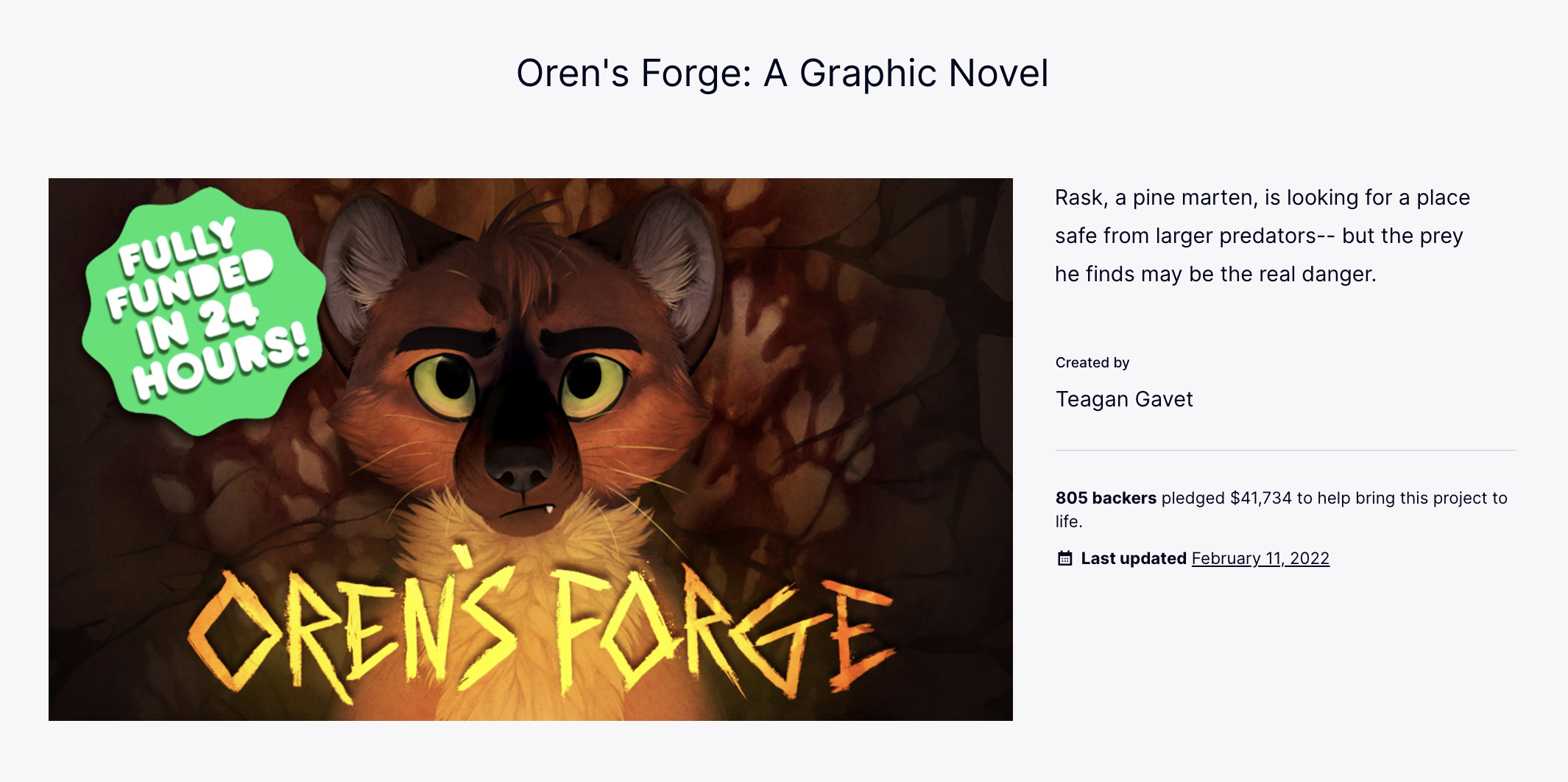
Idea 6: Combine mythology with modern-day
Reimagining ancient myths in modern-day settings can result in captivating and emotionally charged comic books. Imagine a story where all-powerful deities struggle to compete with social media influencers for followers. Or one where mythical creatures look for ways to battle climate change. Your ability to mix and match pieces of ancient and contemporary worlds can result in a modern spin on timeless legends.
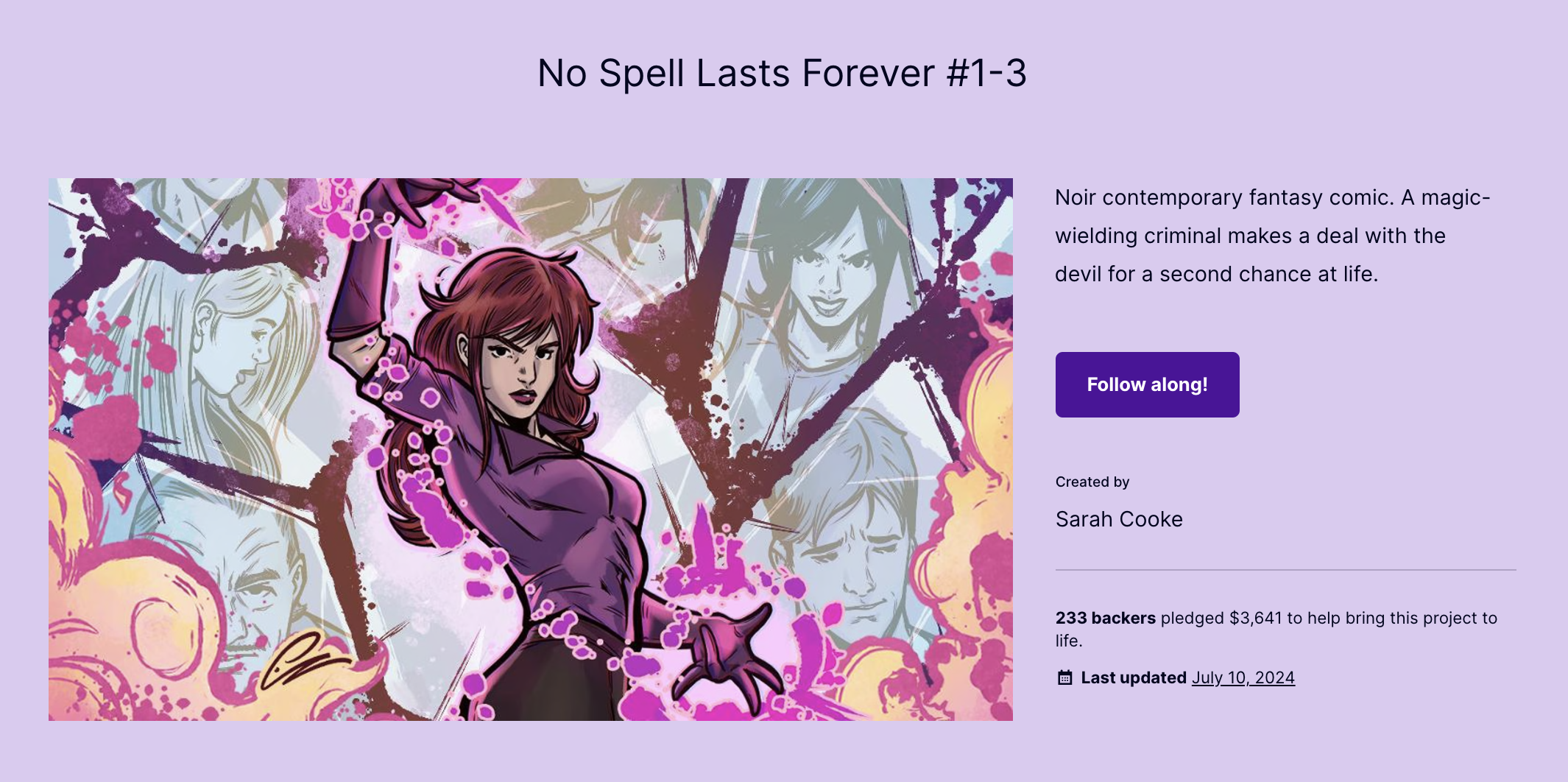
Idea 7: Craft stories that dive into psychological suspense
There's a reason why words like "Pow","Pop", and "Boom" come to mind when people think about comic books. Comics are a visual medium, so they often focus on physical actions like chasing bad guys or fighting for the fate of the universe. But writing stories about what’s happening in your character’s head can make for equally compelling comics.
Crafting stories with psychological suspense can captivate your audience and add depth to your story. Topics like mental illness, substance abuse, obsession, and trauma let you explore the complexities of the human psyche.
Stories with psychological suspense often involve characters dealing with internal conflict or moral dilemmas in their personal lives. These internal struggles pair with external challenges to create stories of self-discovery, obstacles overcome, and personal growth.

Idea 8: Explore untold stories
Present-day experiences can be a great source of inspiration for comic book creators. Including characters from diverse cultural backgrounds can expand your storytelling possibilities. Characters from underrepresented groups, including LGBTQIA+ folks, can bring fresh perspectives that help you approach your story in a new way.
Moving your story forward is all about finding interesting challenges for your characters to face. Having characters from different walks of life lets you explore different types of challenges and goals. That may be just what you need to put a unique spin on conventional comic book plots.
Even adding aspects of your unique life story into the plot can give you new elements with which to experiment. If you're writing an epic fantasy, try infusing some real-life experiences into your story. That may give you an interesting angle that will get your storytelling gears moving.
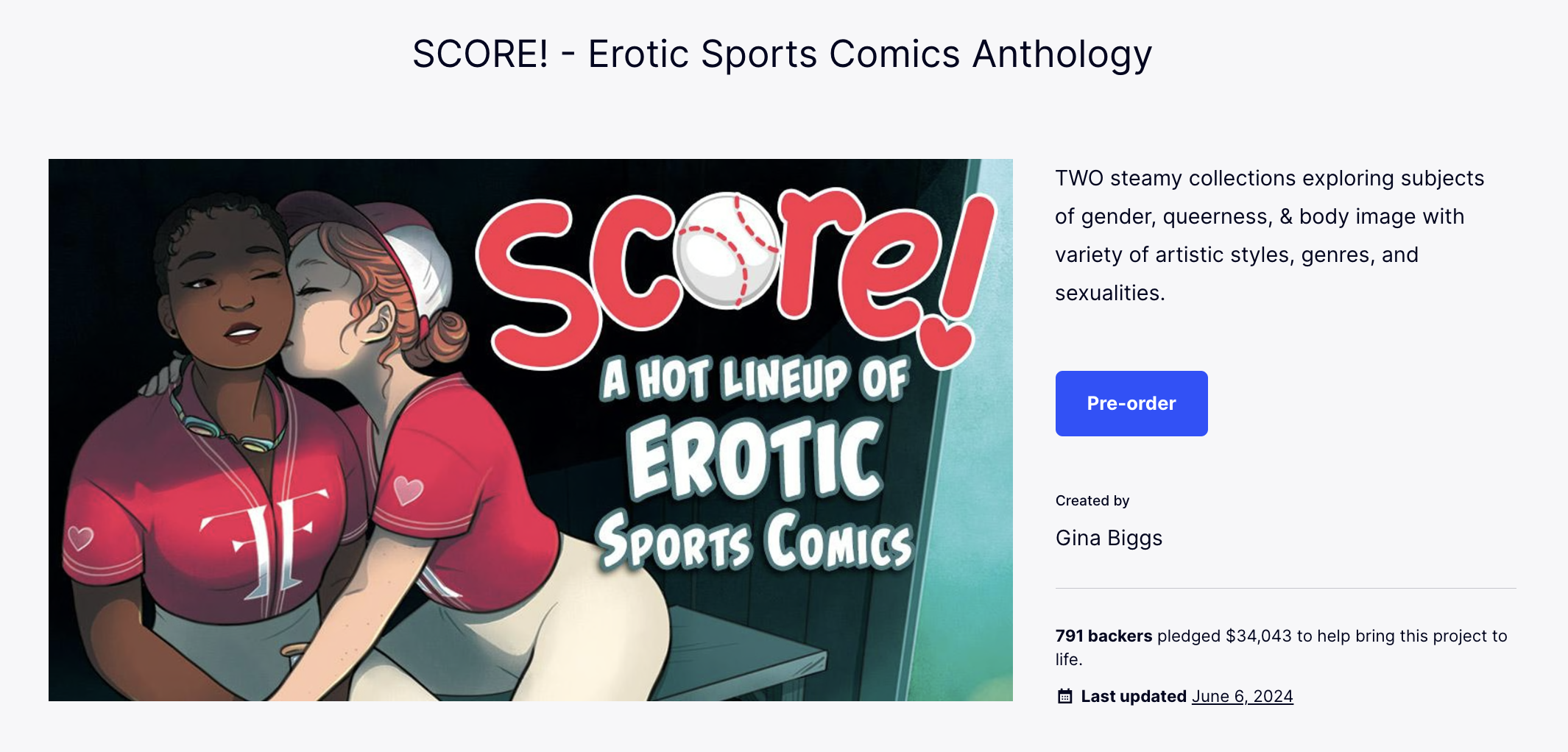
Idea 9: Dive into dystopian futures and utopian dreams
The best or worst version of the world can serve as an excellent starting point. A dystopian world is an imagined realm where there is mass suffering, and people live in fear. Conversely, a utopia is a perfect society where everyone is happy or is supposed to be. Both of these extremes offer a variety of possibilities to a comic book writer.
Dystopian futures offer characters the opportunity to show the perseverance and resilience of the human spirit. Perfect utopian societies might not be ideal living situations either, as citizens may lack personal freedom and individuality to maintain the status quo. Exploring these contrasts lets you examine societal values and what it means to be human.
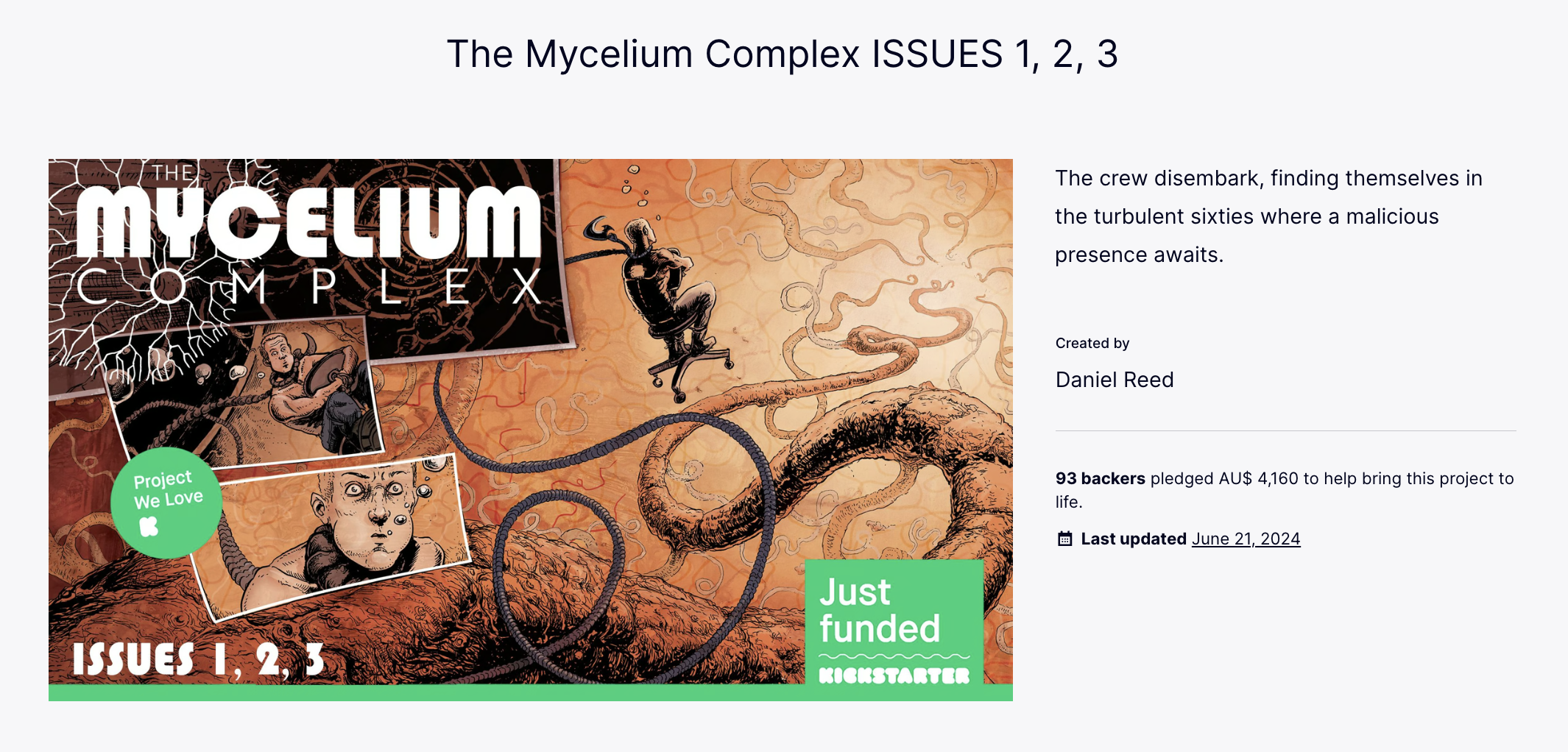
Idea 10: Create interactive and non-linear narratives
The most powerful stories don’t always follow a straight line. Consider maximizing your plot's impact by weaving multiple stories together, using flashbacks and flash-forwards, or arranging events in a non-sequential structure. Non-linear narratives and unexpected techniques keep readers on their toes and can inspire you to take some storytelling risks.
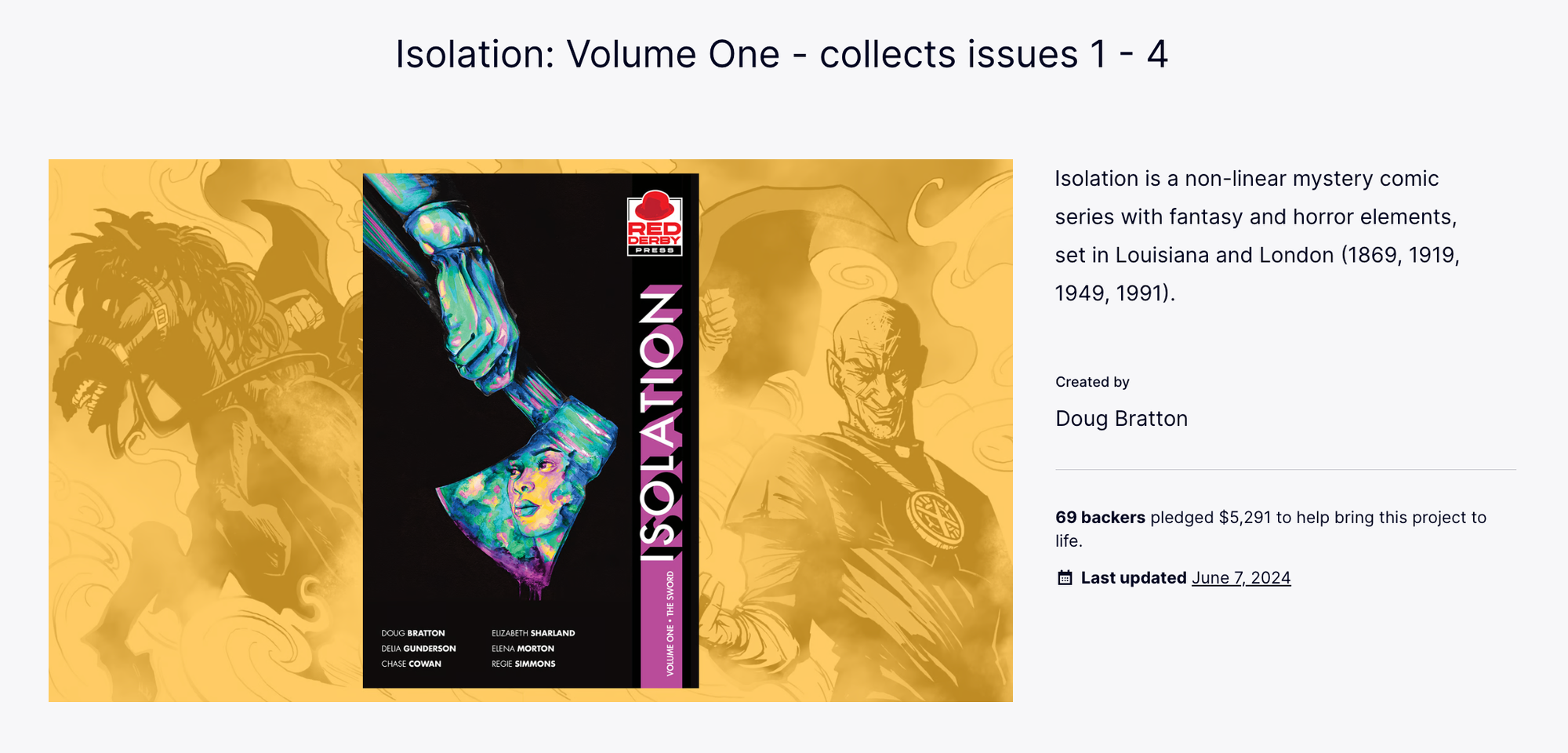
Set up your project for success
With the help of these 10 story ideas for comics, why not get started?
Kickstarter helps creators of all backgrounds get the funding to take their projects from the page to the shelves. Whether you need funds for marketing, production costs, or artwork, crowdfunding can help you share your story with a larger audience.
Think it’s time to create your own comic? Learn how crowdfunding can help make your unique story a reality.
